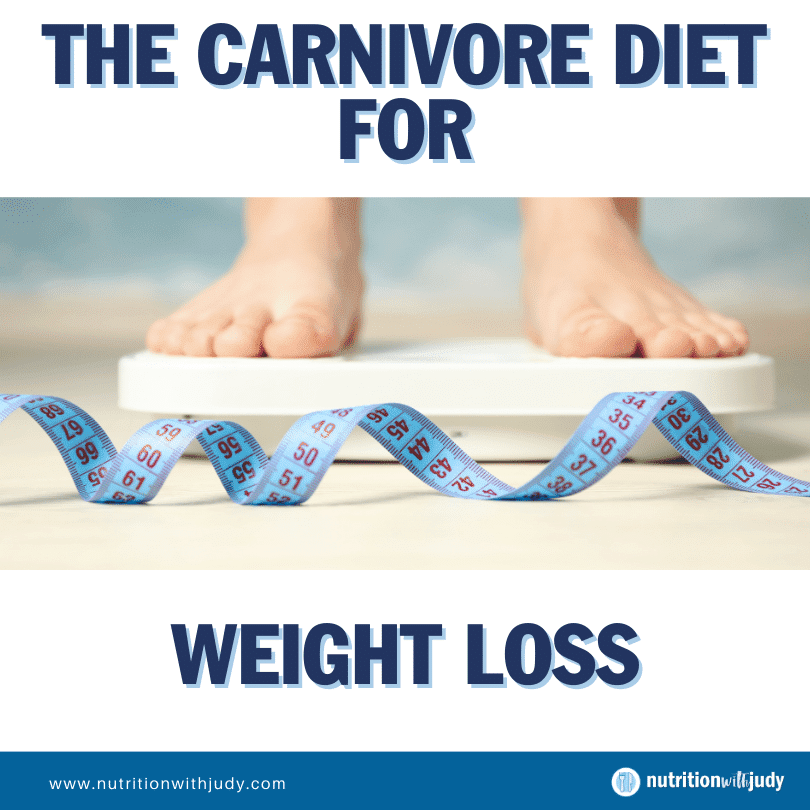

The Carnivore Diet for Weight Loss


The allure of the carnivore diet spans a diverse array of health backgrounds, captivating many with its simplicity and compelling promise of transformation. In our clinical practice, we’ve witnessed a growing interest in the carnivore diet for weight loss, a trend mirrored by the health community at large. This diet, celebrated for its focus on meat consumption and elimination of plant-based foods, has become a beacon for those seeking a dramatic change in their health and weight management.
Our experience has shown that one of the common motivations for individuals embarking on the carnivore diet is the pursuit of weight loss. This approach has not only proven effective for weight management but also for addressing various health concerns. It’s important to recognize that while many find success in healthy weight management, the journey can be nuanced, with variations in individual experiences. The diet’s efficacy in weight loss, coupled with its potential to alleviate other health issues, makes it a compelling choice for many.
As we delve deeper into the carnivore diet for weight loss, it’s crucial to understand that this diet is more than just a weight loss tool. It’s a holistic approach that can lead to significant improvements in physical and mental well-being. Our goal is to guide you through this journey, providing insights and support to harness the full potential of the carnivore diet in achieving your health and wellness goals.
What Is the Carnivore Diet?
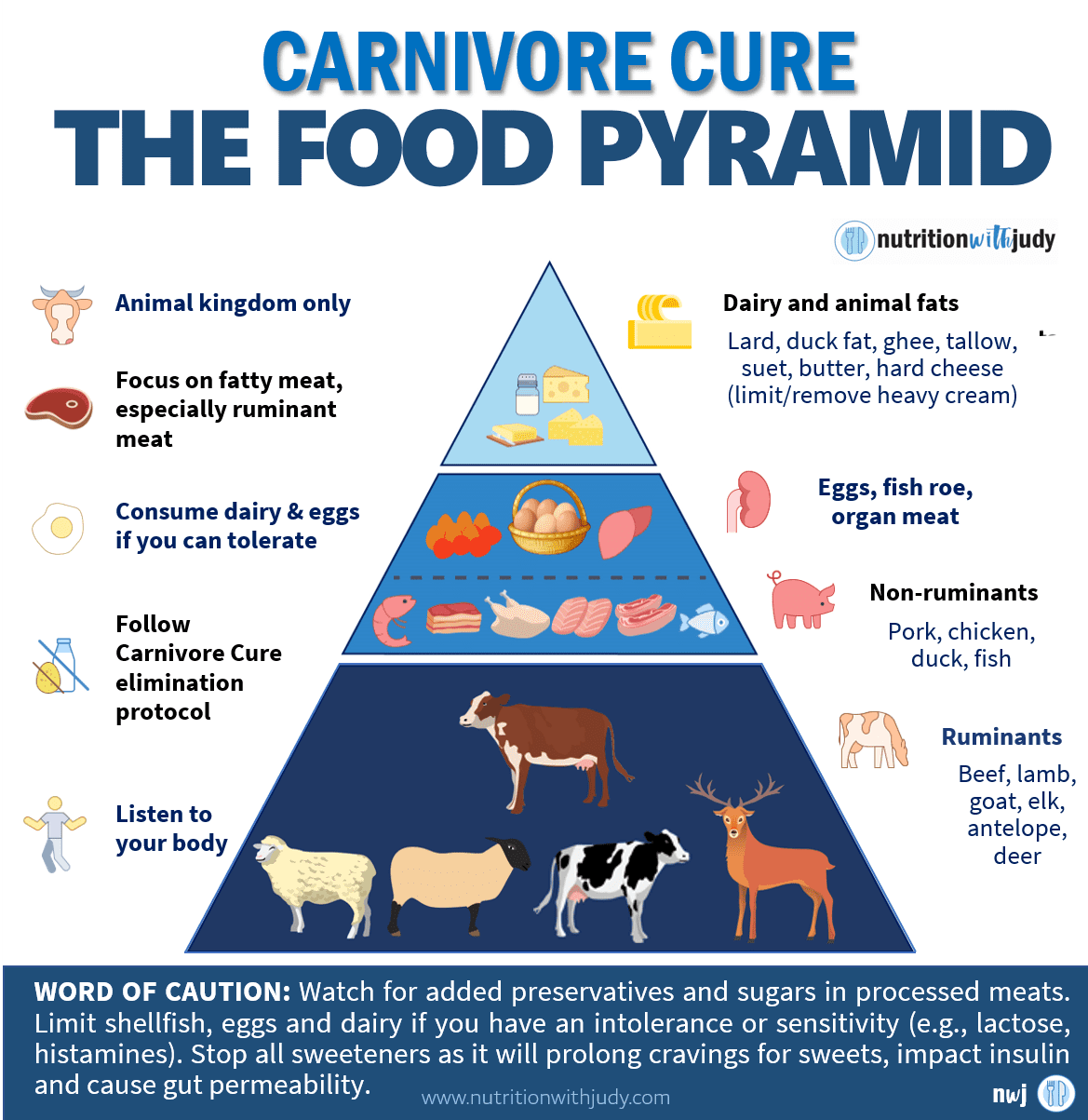

The carnivore diet, a regimen centered around consuming animal products exclusively, has evolved into various adaptations to cater to different health needs and preferences. Here’s an overview of the different types of carnivore diets:
- Beef-Only Carnivore Diet: This variation strictly involves eating beef. It is often chosen for its simplicity and for elimination diet purposes. However, long-term adherence to a beef-only diet is not typically recommended due to potential nutrient imbalances. It should be used as a temporary tool for supporting deeper health issues, gut healing, and as the ultimate elimination diet.
- Lion Diet: A highly restrictive form, the lion diet limits intake to ruminant meats (such as goat, lamb, bison, elk, and beef), salt, and water. It’s aimed at people with severe autoimmune issues, food sensitivities, and deeper health concerns.
- Nose-to-Tail Carnivore Diet: This approach includes all parts of the animal, from muscle meat to organs, to honor all parts of the animal. It emphasizes the importance of consuming organ meats for their nutritional value. It’s important to note that there’s a lot of nuance when it comes to eating organ meats. Make sure to work with a trusted carnivore diet practitioner to ensure the safety of organs in your diet.
- Zero-Carb Carnivore Diet: This version expands to include muscle and organ meat from any animal, dairy products, and eggs. While dairy and eggs technically do contain some carbs, this way of eating is nearly zero-carb. It’s a great place to start for individuals who tolerate dairy and eggs.
- Carnivore Keto Diet: This diet combines the principles of the ketogenic diet with the carnivore diet, focusing on high-fat, moderate-protein animal foods while minimizing carb intake. With the addition of some lower toxicity plant options such as pickled and avocados, this diet variation is great for those who have healed and have metabolic flexibility.
- Carnivore-Ish Keto Diet: This is a less restrictive form that includes some plant foods. It’s essentially a ketogenic diet with a strong emphasis on animal products. With the inclusion of more keto favorites, this diet is recommended for people who are metabolically healthy and don’t have any food addiction issues.
- Animal-Based Diet: This diet features the inclusion of raw dairy, eggs, honey, and fruit. We don’t generally recommend this diet variation as we’ve only seen individuals who are very athletic, metabolically healthy, and free from sugar addiction issues do well on it.
Each variation of the carnivore diet offers unique benefits and considerations. The choice of a specific type depends on individual health goals, dietary preferences, and tolerance.
What Are the Benefits of the Carnivore Diet?
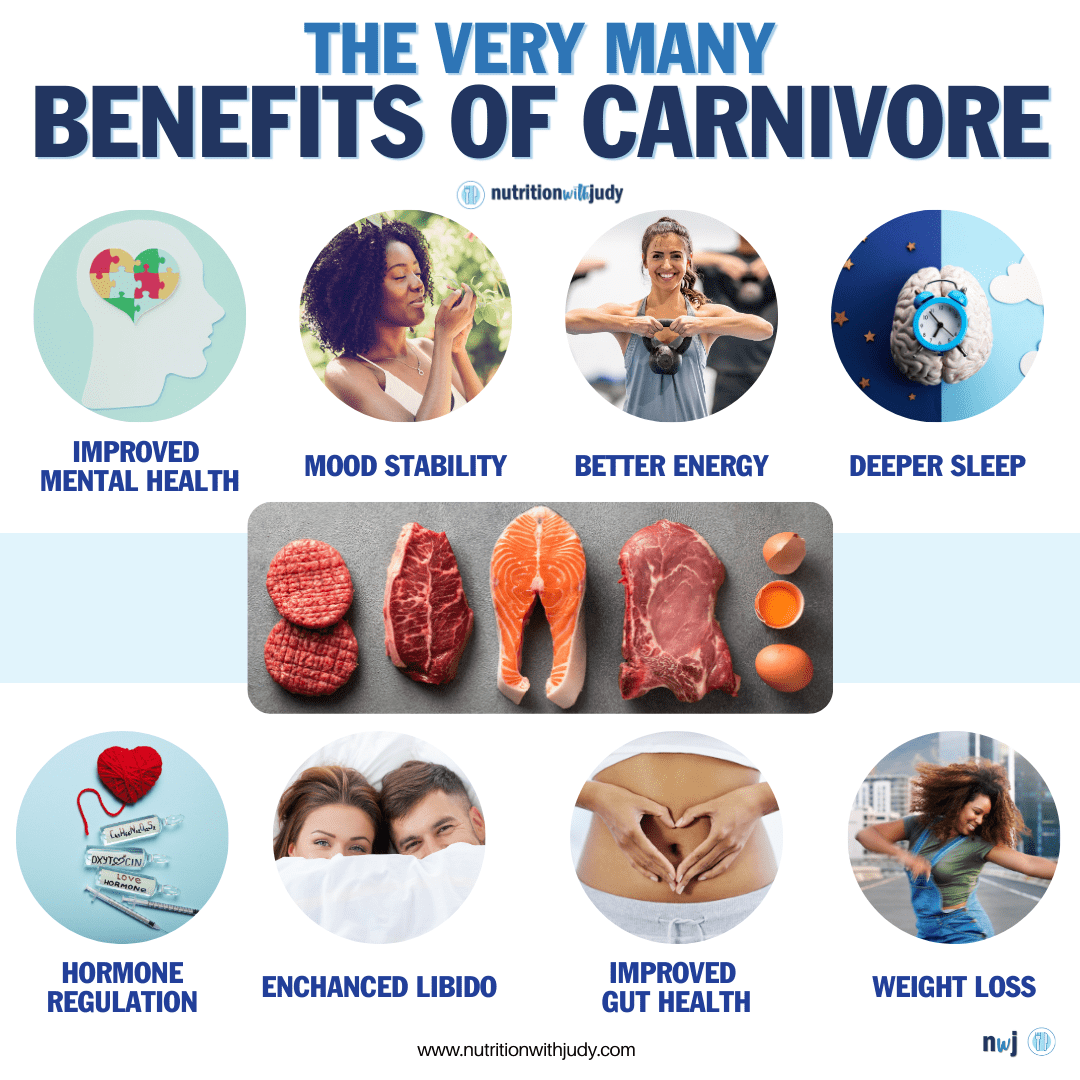

The carnivore diet, centered around consuming animal products exclusively, offers a range of benefits that cater to various health needs. Below is an in-depth list of reasons individuals might consider adopting this way of eating:
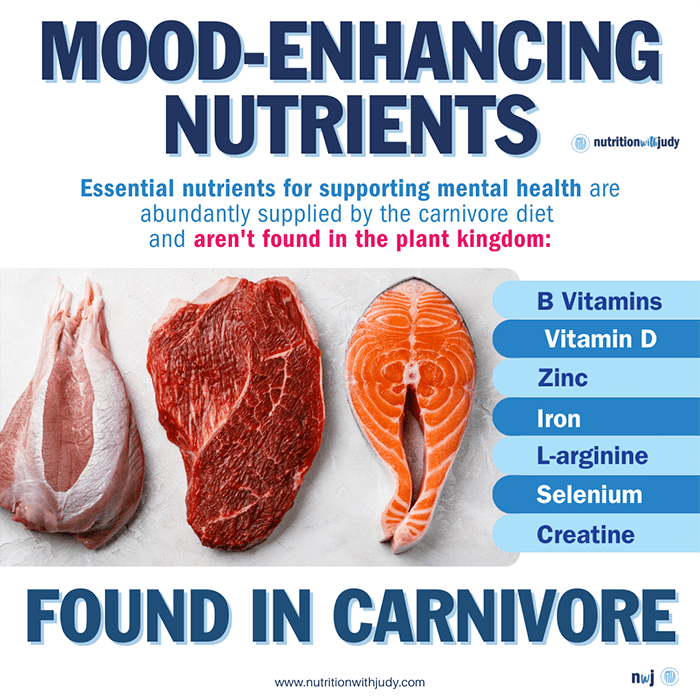

- Mental Health Improvement: Many have reported significant improvements in mental health conditions such as depression and anxiety. The carnivore diet has been a life-changer for some, offering freedom from chronic mental health struggles.
- Autoimmune and Inflammatory Conditions: The diet has shown remarkable results in healing autoimmune illnesses and reducing inflammation, offering a new lease on life for those who have struggled with these conditions.
- Food Sensitivity and Allergy Reduction: The elimination aspect of the carnivore diet helps in identifying and reducing food sensitivities and allergies, providing a clear path for individuals struggling with adverse reactions to various foods.
- Metabolic Health: It’s beneficial for those with metabolic diseases such as diabetes type 2 and high blood pressure. The diet’s high nutrient density and bioavailability make it ideal for addressing longstanding metabolic issues.
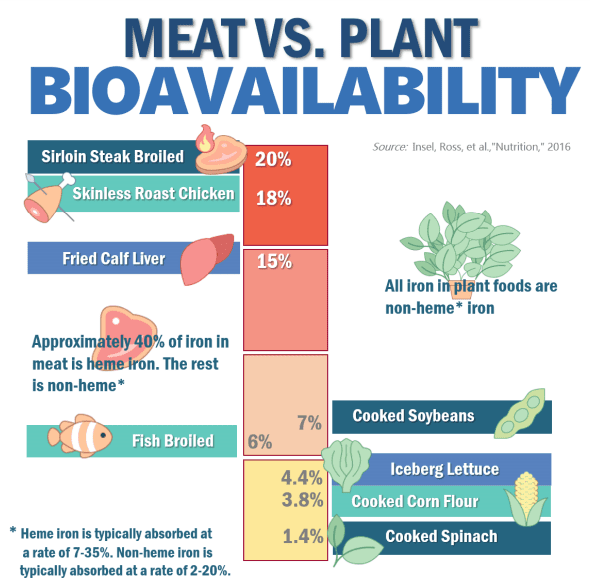

- Nutrient Density and Bioavailability: Animal products are among the most nutrient-dense and bioavailable foods. This aspect of the carnivore diet makes it particularly appealing for those seeking to maximize nutrient intake without the anti-nutrients found in many plant foods.
- Variety and Balance in Nutrition: While a meat-only diet is the core, the inclusion of a variety of meats such as salmon for omega-3s, pork for thiamine, and shellfish for copper and zinc balance ensures a well-rounded intake of essential nutrients.
- Holistic Health Approach: The diet is not just about nutrition; it incorporates the mind-body connection, stress management, and the importance of good relationships for overall health. This holistic approach recognizes that diet is just one aspect of a healthy lifestyle.
- Customizability: The carnivore diet offers flexibility, allowing individuals to tailor it to their specific health conditions and needs, whether it’s for managing insulin resistance, gut issues, or mental health imbalances.
- Elimination Diet Benefits: As an elimination diet, the carnivore diet supports healing from a variety of health issues, particularly those related to thyroid and hormone imbalances, and it serves as a powerful tool for identifying problematic foods.
The carnivore diet presents a unique and effective approach to health and wellness. Its focus on high-quality animal products, coupled with the elimination of potentially problematic plant foods, offers a path to healing and improved well-being for many. From mental health to metabolic disorders, its benefits are wide-ranging, making it a compelling option for those seeking a holistic approach to health.
Who Should Try the Carnivore Diet?


The carnivore diet, emphasizing the consumption of animal products, offers a versatile solution that can be tailored to meet a wide range of health goals and needs. Here’s a summary of who might consider trying the carnivore diet and how it can be customized:
- Individuals With Mental Health Issues: Those struggling with mental health conditions, including depression and anxiety, have found relief through the carnivore diet. Its potential to improve mental well-being makes it a compelling option for individuals seeking alternative dietary approaches to mental health management.
- People With Food Sensitivities: The carnivore diet serves as an effective elimination diet, ideal for identifying and managing food sensitivities. Its simplicity allows individuals to isolate and remove potential dietary triggers, leading to improved health outcomes.
- Those With Metabolic Diseases: Individuals suffering from metabolic diseases such as type 2 diabetes and obesity may find the carnivore diet particularly beneficial. The nutrient-dense and bioavailable nature of meat can be pivotal in managing and even reversing some of these conditions.
- Varied Health Conditions: The diet can be customized for those with insulin resistance, autoimmune diseases, gut issues, mineral imbalances, or food addictions. It acknowledges that dietary needs vary significantly among individuals, and a one-size-fits-all approach is not effective.
- Holistic Health Approach: Recognizing the importance of the mind-body connection, stress management, and good relationships, the carnivore diet can be part of a broader holistic health strategy. It underscores the necessity of addressing all aspects of health for overall well-being.
- Customization Based on Individual Needs: The carnivore diet can be adjusted according to individual preferences and health requirements. For instance, incorporating a variety of meats such as salmon for omega-3s, pork for thiamine, and shellfish for copper and zinc can address specific nutritional needs and imbalances.
The carnivore diet is not a rigid framework but a flexible dietary approach that can be adapted to suit a wide range of health requirements and preferences. Whether one is seeking to manage a chronic condition, improve mental health, or simply explore an alternative nutritional path, the carnivore diet presents a viable and customizable option. By listening to the body and adjusting their diet accordingly, individuals can embark on a journey toward improved health and well-being.
How Does the Carnivore Diet Help With Weight Loss?
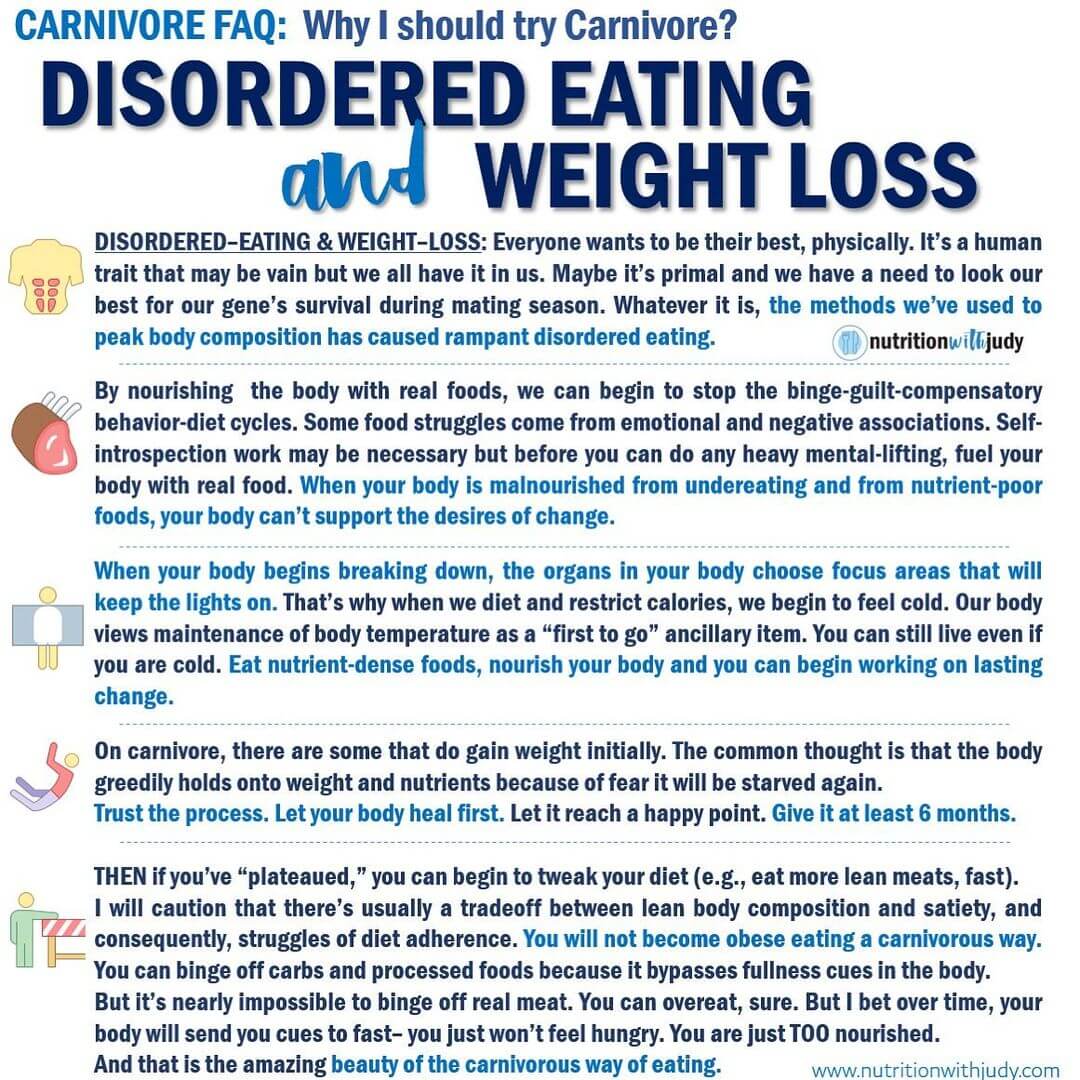

The carnivore diet, focused on consuming animal products, offers several pathways to weight loss, making it an appealing option for many seeking a sustainable and effective diet. Here’s a comprehensive summary of how the carnivore diet aids in weight loss:
Elimination of Carbohydrates
Eliminating carbohydrates from the diet can be a significant factor in weight loss. This is primarily because the typical American diet includes more carbohydrates than the body needs. The human body has a limited capacity to store glucose: only about 2000 calories worth of glucose can be stored in the liver (100 to 120 grams) and muscles (400 to 500 grams).
When carbohydrate intake exceeds this storage capacity, the excess is converted into fat. This conversion contributes to weight gain. Furthermore, despite the common belief that complex carbohydrates have less impact on blood sugar levels, they are fundamentally similar to simpler carbohydrates, such as sugars. When digested, both end up as glucose in the body, contributing to the same issue of excess storage and fat conversion.
With the elimination of carbs on a carnivore diet, this helps support healthy weight loss.
Natural Calorie Control
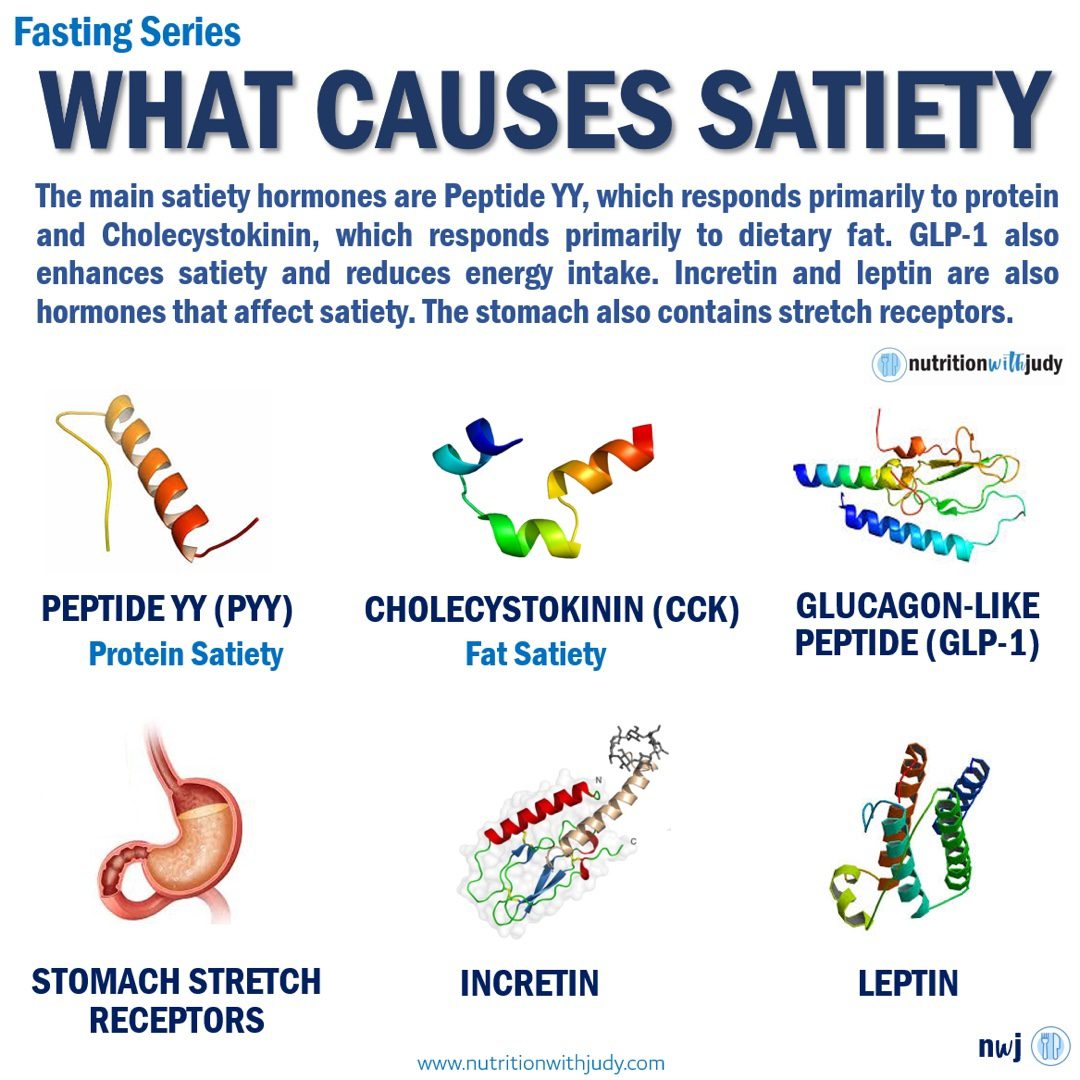

The carnivore diet offers natural calorie control and is more satiating compared to other diets due to its focus on nutrient-dense whole foods such as fatty red meat, omega-3-rich fish, and eggs. These foods are not only rich in essential nutrients but also provide a high level of satiety.
Initially, individuals may need to track their intake of proteins and fats, but over time, it becomes more about intuitive eating. The body, when provided with such nutrient-rich foods, naturally adjusts to a balance that is right for it, without the need for constant tracking of calories, macronutrients, or micronutrients.
This approach helps in avoiding both under-eating and the excessive calorie counting often associated with other diets. The high nutrient density and satiety factor of the carnivore diet foods lead to a more natural control of calorie intake, facilitating a balanced and satisfying dietary experience.
Increased Metabolic Rate
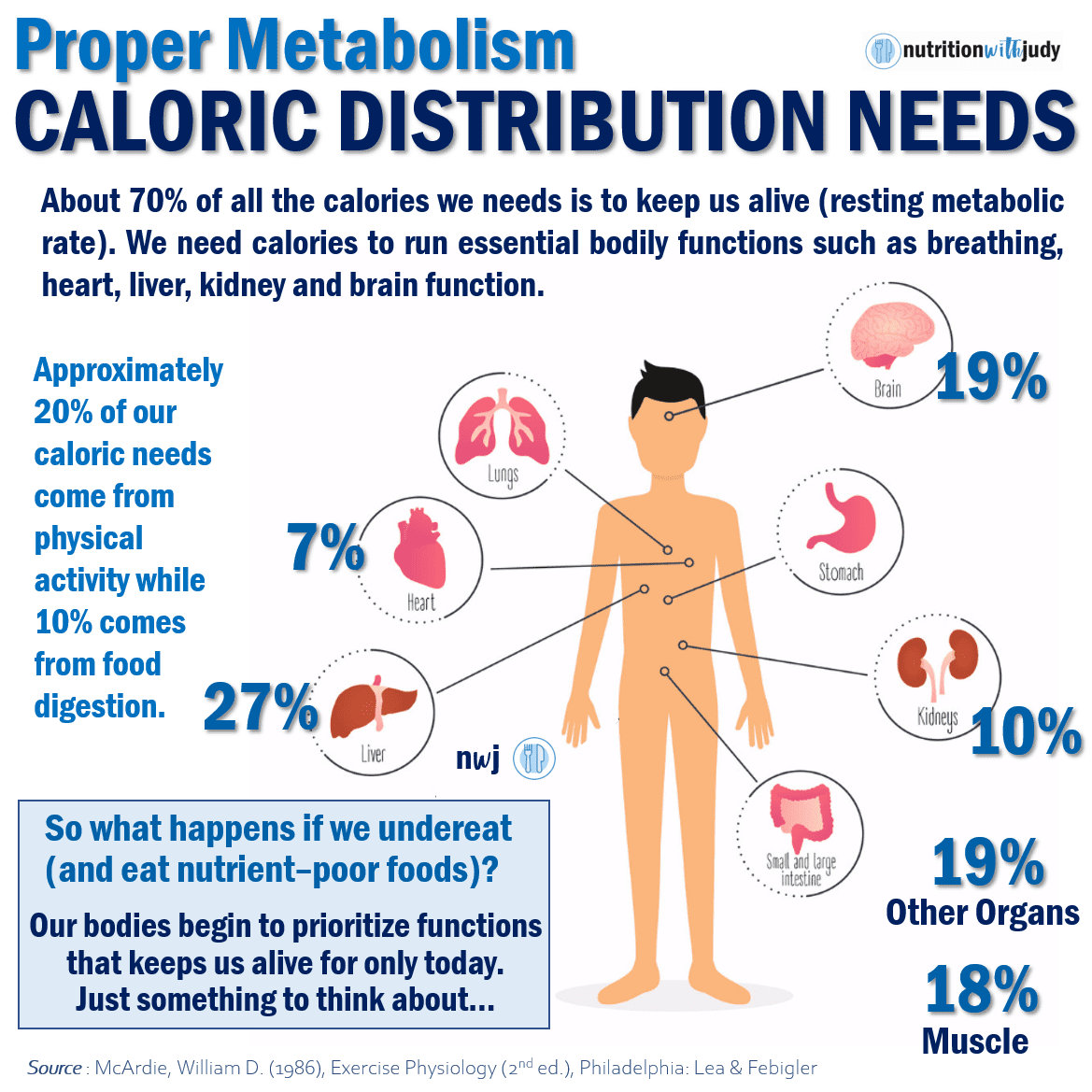

The carnivore diet can potentially increase metabolic rate, aiding in improving weight loss goals. This effect may be attributed to several factors:
- Protein Thermogenesis: A carnivore diet is high in protein, and protein has a higher thermic effect compared to fats and carbohydrates. This means the body uses more energy to digest, absorb, and metabolize protein, which can slightly boost the metabolic rate.
- Lean Muscle Mass: Protein-rich diets support the maintenance and growth of lean muscle mass. Since muscle tissue burns more calories than fat tissue, even at rest, having more muscle mass can increase the metabolic rate.
- Reduced Insulin Levels: A diet high in animal proteins and fats, and low in carbohydrates, can lead to lower insulin levels. Insulin is a hormone that, among other roles, promotes fat storage. Lower insulin levels can enhance the body’s ability to burn fat for energy, potentially increasing the metabolic rate.
- Appetite Regulation: High protein intake has been linked to increased satiety. A more satiating diet can lead to reduced calorie intake without the feeling of deprivation, which is beneficial for weight loss.
Focus on Whole, Nutrient-Dense Foods


The nutrient-dense nature of the carnivore diet can play a crucial role in addressing certain illnesses that contribute to weight gain, thereby aiding in weight loss. Many health issues, including hormonal imbalances and metabolic disorders, can be the root cause of weight gain.
When these deficiencies are addressed, the body can function more efficiently, hormone health and brain health are supported, and this, in turn, can facilitate weight loss. Ensuring an adequate intake of nutrients through the carnivore diet supports the body’s overall health, enabling it to better manage weight.
Reduction in Food Cravings and Addictions
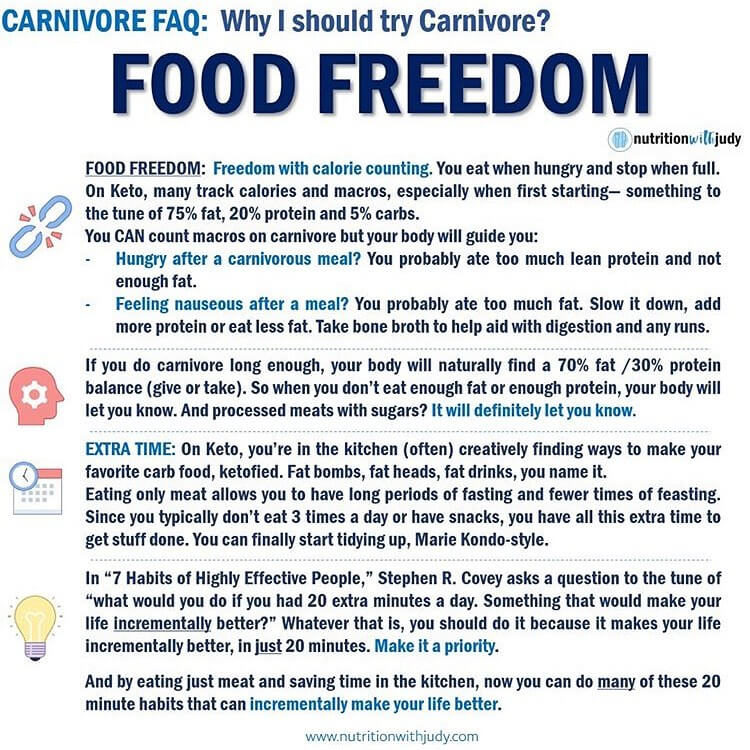

The diet helps in reducing cravings and addictions to unhealthy foods, particularly sugar and processed foods, which are major contributors to weight gain. By focusing on these nutrient-dense foods, the diet helps in rectifying nutritional deficiencies that may be underlying factors in weight gain.
Improved Mental Health


Mental health improvements, such as the alleviation of depression and anxiety, can lead to better eating habits and reduced emotional eating, thus supporting weight loss efforts. Anecdotally, many individuals have reported improvements in various medical conditions, including mental health issues, by following a carnivore diet.
This improvement in mental health can be a significant factor in successful weight management. Mental health challenges often contribute to unhealthy eating habits, stress eating, and a disrupted relationship with food. By improving mental well-being, the carnivore diet can help individuals develop a healthier relationship with food, leading to more mindful eating habits and better control over food intake.
This shift can significantly contribute to sustained weight loss and overall well-being. Additionally, the nutrient-dense nature of the carnivore diet may support brain health and cognitive function, further aiding in the management of mental health conditions that could impact weight.
Customizable to Individual Needs
The carnivore diet can be customized according to individual macronutrient needs. Adjusting protein-to-fat ratios and caloric intake based on personal health goals and body composition can optimize weight loss.
Mimicking Fasting Effects
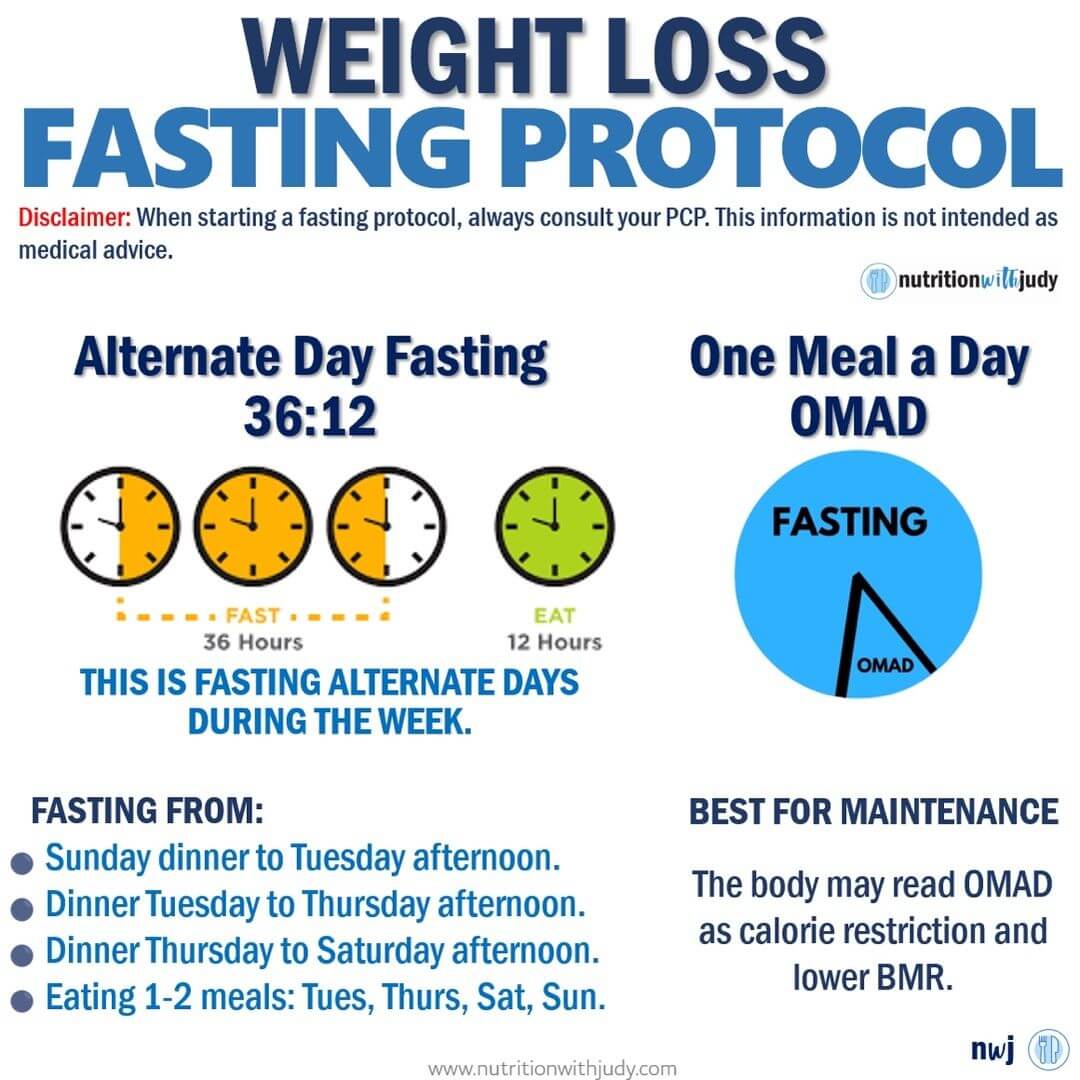

The carnivore diet is believed to mimic the effects of fasting, which can be beneficial for healthy weight loss. Fasting, whether intermittent (less than 24 hours) or extended (over 24 hours), induces a process called autophagy, which is the body’s way of cleaning up old and broken-down cells. When following a carnivore diet, the benefits of autophagy can be achieved in a shorter fasting period. This is significant for weight loss as autophagy is associated with improved metabolism and cellular efficiency.
By mimicking fasting, the carnivore diet can help the body to more efficiently use fat as energy, leading to healthier weight loss. Especially when combined with personalized fasting protocols, this can offer a powerful tool for weight loss.
Healing Approach
By focusing on healing the body first and not just weight loss, the carnivore diet creates a sustainable way of eating that can lead to long-term weight management. This approach ensures that weight loss is a result of overall improved health.
The carnivore diet offers a multifaceted approach to weight loss. It combines the benefits of macronutrient balance, mental health improvement, and a focus on healing to create a powerful tool for those looking to lose weight and improve their overall health.
The Carnivore Diet for Metabolic Syndrome
Metabolic syndrome is a cluster of conditions that occur together, increasing the risk of heart disease, stroke, and type 2 diabetes. These conditions include increased blood pressure, high blood sugar, excess body fat around the waist, and abnormal triglyceride levels. Metabolic syndrome plays a significant role in obesity and weight gain due to its impact on the body’s metabolic processes.
The carnivore diet, primarily focused on animal-based foods, offers significant benefits in addressing various aspects of metabolic syndrome. Here’s how:
Improving Insulin Sensitivity
The carnivore diet can improve insulin sensitivity, which is a key factor in managing and preventing metabolic diseases, including obesity and type 2 diabetes. A significant issue in modern diets is the “carbohydrate-insulin roller coaster,” where frequent consumption of carbohydrates leads to repeated spikes and falls in blood sugar levels. This pattern can eventually lead to insulin resistance, a condition where the body’s cells become less responsive to insulin, the hormone responsible for regulating blood sugar levels. Insulin resistance is often associated with weight gain, as insulin promotes the storage of excess energy as fat.
The carnivore diet, by eliminating carbohydrates, avoids these blood sugar spikes and the consequent insulin surges. This steadier insulin response helps to prevent the storage of excess energy as fat and can reverse the trend toward insulin resistance. By improving insulin sensitivity, the body becomes more efficient in using the energy it consumes, reducing the risk of fat storage and aiding in weight management.
Managing Blood Sugar Levels
For individuals with type 2 diabetes, the carnivore diet can be particularly beneficial. The absence of carbohydrates in the diet leads to more stable blood sugar levels, reducing the need for medication and alleviating symptoms of diabetes.
By cutting out carbohydrates, the diet helps maintain more stable blood sugar levels throughout the day. This stability is key in preventing the highs and lows that can exacerbate insulin resistance. Furthermore, a diet rich in protein and fats, as seen in the carnivore diet, can improve insulin sensitivity. This means that the body becomes better at using the insulin it produces, helping to regulate blood sugar levels more effectively.
Additionally, stable blood sugar levels can reduce cravings and the likelihood of overeating, which are common challenges for individuals with metabolic syndrome. By improving insulin sensitivity and stabilizing blood sugar levels, the carnivore diet can be a powerful tool in managing and potentially reversing metabolic syndrome, thereby supporting healthy weight loss and overall metabolic health.
Addressing Heart Disease Risks
By focusing on nutrient-dense, whole foods and eliminating processed foods, the carnivore diet can play a pivotal role in managing heart disease risks, which is closely linked to addressing metabolic syndrome. Metabolic syndrome often includes conditions such as blood sugar imbalances and an excess of circulating insulin, both of which are significant risk factors for heart disease.
A carnivore diet, which typically eliminates processed foods, toxic vegetable oils, and carbohydrates, can significantly reduce these risks. By focusing on nutrient-dense, whole animal foods, the diet may help in reducing chronic inflammation, a key contributor to heart disease.
Furthermore, a meat-based diet typically leads to an improvement in gut health and a reduction in nutrient deficiencies, both of which are important for overall cardiovascular health. By addressing these fundamental aspects of metabolic health, the carnivore diet can help reduce the risk factors associated with heart disease, contributing to the overall management of metabolic syndrome.
Customizable Nutrition
The diet’s flexibility allows it to be tailored to individual needs, whether managing autoimmune disorders, thyroid issues, or hormonal imbalances, all of which can be components of metabolic syndrome.
The carnivore diet presents a potent tool for managing and potentially reversing the effects of metabolic syndrome. Its focus on high-quality animal proteins and fats, coupled with the elimination of carbohydrates and processed foods, directly addresses the key factors of metabolic syndrome, offering a path towards improved health and well-being.
Leading Tips for Supporting Weight Loss on the Carnivore Diet
Welcome to our recent interviews, where we’ve had the immense pleasure of interviewing renowned experts in the fields of weight loss and the carnivore diet. Through these enlightening discussions, we’ve gathered invaluable insights and perspectives from leading nutritionists, physicians, and researchers.
Each expert brings a wealth of knowledge and experience, shedding light on how the carnivore diet impacts weight loss, health, and overall well-being. Their contributions offer a deeper understanding and practical advice for anyone considering or currently following this dietary approach. Join us as we delve into these expert conversations, uncovering the nuances and benefits of the carnivore diet for weight loss.
The Secret to Weight Loss Without Losing Muscle With Dr. Donald Layman
In this insightful interview, we had the pleasure of speaking with Dr. Donald Layman, an esteemed professor emeritus in the Department of Food Science and Human Nutrition at the University of Illinois at Urbana-Champaign. Dr. Layman, with his extensive research in dietary protein and amino acids, and experience in metabolic regulation for obesity, diabetes, and cardiovascular disease, offers valuable perspectives on the carnivore diet and its health implications.
While Dr. Layman is not a proponent of the carnivore diet, he acknowledges its potential benefits and emphasizes the importance of understanding dietary needs on an individual basis. He highlights the need to test and challenge our dietary choices to ensure they align with our personal health goals. Dr. Layman delves into the nuances of protein consumption, discussing the optimal levels for various age groups and lifestyles, and the distinction between plant and animal-based proteins in terms of amino acids and bioavailability.
The conversation also sheds light on the role of protein in muscle health, particularly the importance of protein distribution throughout the day. Dr. Layman stresses the significance of the first meal of the day, which should be high in protein to counteract muscle catabolism that occurs overnight. He further explains how different protein sources affect muscle synthesis and overall metabolic health.
Our interview with Dr. Layman offers a comprehensive exploration of the carnivore diet, challenging preconceived notions while providing practical advice for those interested in or currently following this dietary approach. His insights into protein’s role in health and wellness make this conversation a must-listen for anyone seeking to optimize their diet for better health outcomes.
Steps to Reduce Visceral and Belly Fat With Dr. Sean O’Mara
In this engaging interview, we sit down with Dr. Sean O’Mara, a renowned medical doctor and health optimization researcher. We delve into the intricacies of visceral and subcutaneous fat, with a focus on the health implications of each. Dr. O’Mara, a proponent of optimizing physical performance and health, shares his latest findings on measuring visceral fat and discusses the subtleties of MRI imaging in this context.
Dr. O’Mara, who also heads an innovative medical startup in Minneapolis, is known for his research funded by the National Science Foundation aimed at reversing chronic diseases, a leading cause of death globally. Their conversation touches on the significance of different types of fat, especially the contrast between visceral fat, which is detrimental, and subcutaneous fat, which can be protective depending on its depth.
Dr. O’Mara explores the concept of back fat and love handles, unraveling what these physical characteristics indicate about a person’s health. We also discuss the nuances of fermented vegetables in a diet, particularly in the context of fungal overgrowths such as small intestinal fungal overgrowth (SIFO) and small intestinal bacterial overgrowth (SIBO), where fermented foods might not be beneficial.
The dialogue also covers how to identify potential fungal overgrowths without formal testing, including symptoms such as persistent athlete’s foot, UTIs, and scalp itch. Dr. O’Mara emphasizes the importance of a well-balanced diet for overall health and touches on his support for fermented vegetables in certain cases. The conversation is a blend of scientific insight and practical health advice, underscoring the need for individualized care in diet and health optimization.
Why Obesity Is the Fault of Ultra-Processed Foods With Mark Schatzker
In this insightful interview with Mark Schatzker, author of Steak, The Dorito Effect, and The End of Craving, the profound impact of nutrition on brain function and obesity. Schatzker highlights how food, especially when altered or processed, can mislead our brains, leading to overeating and food cravings. He emphasizes that our brain seeks nutrients from foods, but when those signals are mismatched due to artificial flavors or additives, it can lead to a continuous cycle of craving without satisfaction.
Schatzker’s research delves into the nuances of how the brain responds to different calorie contents in foods and the significance of sensory signals in eating behavior. He explains the concept of “reward prediction error,” where the brain’s expectation of a reward, in this case, nutrients from food, does not match the actual intake, leading to increased motivation to eat more. This concept is particularly relevant in the context of obesity, where individuals are often driven to consume more due to this mismatch in sensory signals and actual nutrient intake.
The conversation also covers the historical perspective of how food fortification, though initially helpful in addressing deficiencies such as pellagra, has long-term implications on health, particularly in relation to obesity and metabolic diseases. Schatzker advocates for a return to whole, natural foods and a balanced diet as a solution to these modern dietary challenges.
For those seeking to improve their diet, Schatzker recommends approaching food with an attitude of reverence and joy, similar to Italian and Japanese cultures, focusing on the pleasure and nourishment real food provides. His insights underline the importance of understanding the mind-body relationship in dietary choices and overall health.
Carnivore Diet Weight Loss vs. Healing With Dani Conway
In this comprehensive interview with functional nutritionist Danny Conway, we delve into various aspects of health and wellness, focusing particularly on the carnivore and keto diets. Conway, with over 15 years of experience, emphasizes the importance of individualized nutritional approaches, debunking the notion of one-size-fits-all diets. The conversation explores topics such as carbohydrates’ role in thyroid and hormonal functions, the controversy surrounding bioidentical hormones, weight loss versus healing, and the necessity of exercise in a carnivore diet.
Conway shares her journey from struggling with weight and hormonal issues to discovering the benefits of a low-carb lifestyle, leading her to functional medicine. She highlights the significance of addressing each client’s unique needs, and tailoring dietary and lifestyle interventions accordingly. Conway discusses common misconceptions in the carnivore community, such as the unnecessary fear of incorporating certain foods for sustainability and the misguided belief that exercise isn’t essential for health.
We also touch upon the complexity of hormone health, emphasizing the interconnectedness of various hormones such as cortisol, thyroid, leptin, insulin, and sex hormones. Conway stresses the importance of not jumping to hormone replacement therapies and instead focusing on foundational health aspects such as diet, sleep, and stress management.
This enlightening interview underscores the critical role of personalization in diet and lifestyle choices, encouraging listeners to find what works best for them while maintaining a balanced and sustainable approach to health and wellness.
Carnivore Diet for Weight Loss Success Stories
Laura Spath, transitioning from keto to a strict carnivore diet, lost over a hundred pounds and transformed her family’s eating habits. Dr. Lisa Wiedeman, a long-time carnivore advocate for 11 years, shares her journey of overcoming carb addiction and eating disorders, now helping patients with similar challenges. Lastly, Pam Kenney, a working mother and holistic nutrition student, embarked on her carnivore journey three years ago, influenced by Dr. Shawn Baker’s challenge.
The discussion covers a range of topics, including the mental and physical health benefits experienced by each participant, such as anxiety relief, mental clarity, and freedom from IBS symptoms. We address common concerns and queries related to the carnivore lifestyle, such as managing food variety, fasting practices, supplementation, and handling social situations and judgment from non-carnivores.
A key takeaway is the importance of keeping the diet simple, especially for beginners, and focusing on eating meat that is enjoyable and affordable. We also stress the value of having support from the carnivore community. This conversation offers an authentic glimpse into the carnivore diet’s impact, providing encouragement and practical advice for those considering or currently following this lifestyle. For more carnivore diet before and after weight loss success stories, check out this article here.
Closing Thoughts On the Carnivore Diet for Weight Loss
The carnivore diet, a regimen focused on consuming animal products exclusively, has been highlighted through various perspectives for its effectiveness in weight loss and overall health improvement. Key discussions have revolved around the personal journeys of individuals who have experienced significant health benefits, including weight loss, mental clarity, and relief from chronic conditions such as IBS and anxiety.
Participants in these conversations, including nutritionists and individuals with extensive experience in the carnivore diet, have shared their transformations, often involving substantial weight loss and overcoming carb addictions and eating disorders. A common theme has been the simplicity of the diet, emphasizing the consumption of meat without strict tracking of macros or calories. The diet’s impact on mental health, providing a sense of calm and reduced anxiety, was also highlighted.
Challenges discussed include social situations and the perceived judgment from non-carnivores, suggesting the need for a strong support system. Fasting and supplementation were topics of varied practices and opinions, with some finding benefits in intermittent fasting and others preferring a more natural approach without supplements.
Overall, the carnivore diet is portrayed as a transformative lifestyle choice that offers significant benefits in weight loss and mental health, though it requires a mindful approach to social situations and personal nutrition needs.
Work With Our Trusted Carnivore Diet Functional Nutritional Therapy Practitioners
The Nutrition with Judy practice is honored to be a trusted carnivore diet practitioner support serving clients from around the globe. We’re passionate about helping our clients achieve root-cause healing in order to lead the best quality of life possible that’s nearly symptom-free. Our team is dedicated to educating our community about the incredible benefits of the carnivore diet. We welcome you to explore our free resources and are always available to support you through personalized protocols. Our Symptom Burden Assessment (SBA) is the perfect starting point for discovering your root cause and is required to work with our team— you can learn more in-depth about this powerful tool here.
Start your root-cause healing journey today and contact us any time with any questions or concerns.
DISCLAIMER: This content is for educational purposes only. While we are board-certified in holistic nutrition and are nutritional therapy practitioners, we are not providing medical advice. Whenever you start a new diet or protocol, always consult with your trusted practitioner first.





